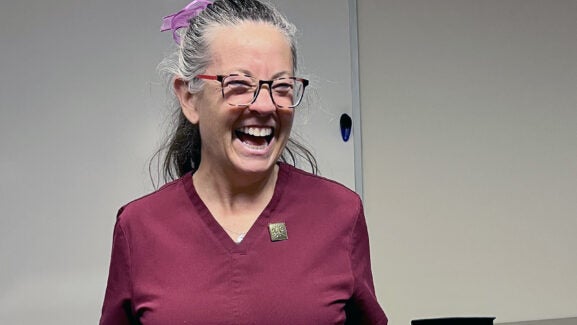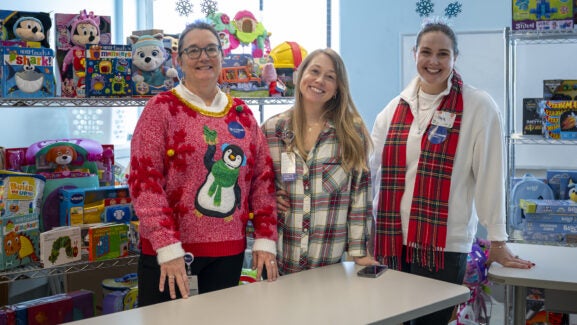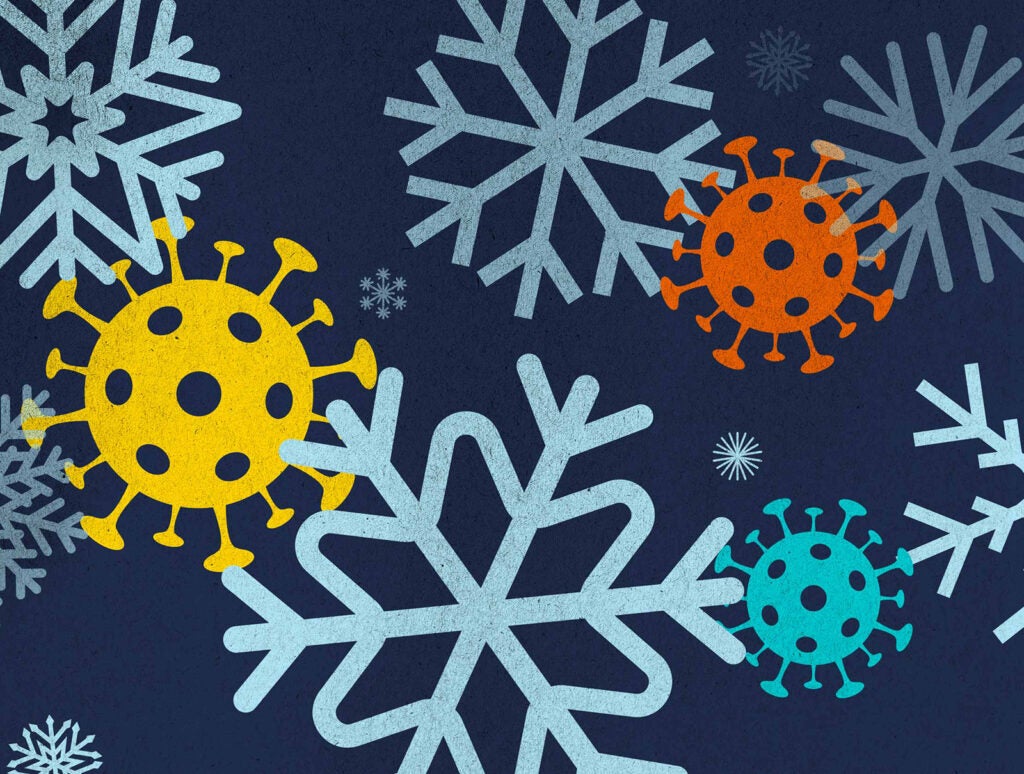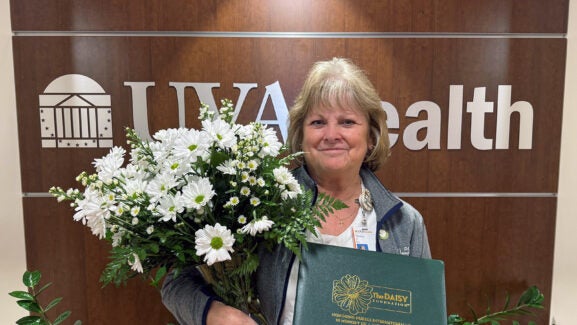
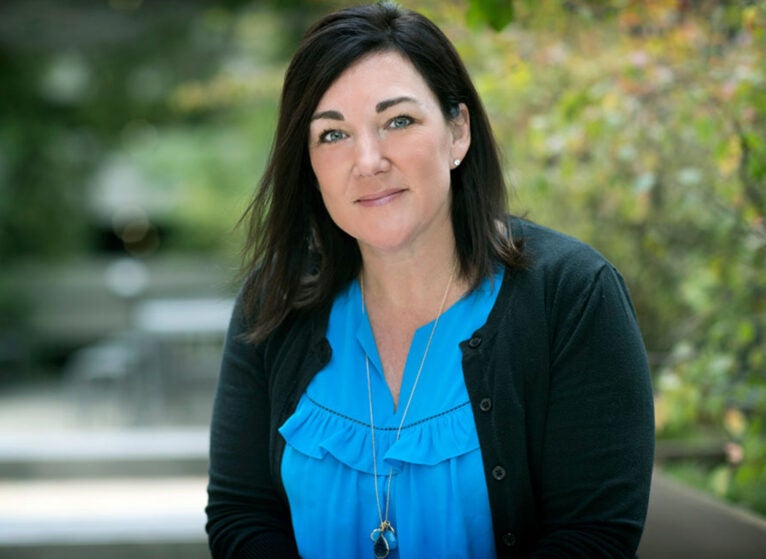
UVA School of Nursing professor Jeanne Alhusen says vaccines are the most effective way to prevent flu and COVID-19. (UVA School of Nursing photo)
Q&A: Will We Have A ‘Tripledemic’ This Year?
There’s a chill in the air, students are back in school and summer’s colors are fading: Cold and flu season is nearly upon us.
For the last three years, healthcare providers have warned of a “tripledemic,” during which rising cases of COVID-19, the flu and respiratory syncytial virus, or RSV, potentially burden already-beleaguered health systems.
But there are ways to keep yourself healthy this cold and flu season. UVA Today reached out to University of Virginia nursing professor and family nurse practitioner Jeanne Alhusen for tips on preventing illness and telling the difference between COVID, the flu, RSV and other common viruses.
What illnesses should people be concerned about this fall and winter?
Alhusen: The flu, COVID-19, respiratory syncytial virus or RSV, the common cold, norovirus or the stomach flu, and pneumonia.
Are we going to have a tripledemic?
Alhusen: A tripledemic refers to the simultaneous surge of three respiratory illnesses: COVID-19, influenza (flu), and respiratory syncytial virus (RSV), which occurred during the fall and winter of 2022-2023. This created a significant strain on healthcare systems due to overlapping waves of infections. Concerns about another tripledemic arise as we approach the fall and winter seasons.
COVID-19 remains a concern, particularly as new variants continue to emerge. Vaccination rates, updated boosters and immunity levels from previous infections will influence how much COVID-19 circulates this season.
The flu tends to be seasonal, with peak activity during fall and winter. Experts encourage people to get their annual flu vaccine to reduce its impact. The Southern Hemisphere’s flu season (which occurs before the Northern Hemisphere’s) often provides clues about what to expect, and some reports have suggested higher flu activity this year.
But we have increased vaccination options this year. Alongside flu vaccines and COVID-19 boosters, new RSV vaccines have been approved for older adults, and monoclonal antibody treatments for infants have been made available. These could reduce the severity and spread of RSV. There’s a greater focus on personal protective measures (e.g., hand hygiene, masks, staying home when sick) as people are more aware of how respiratory infections spread.
While there is a potential for another tripledemic, the situation may not be as severe as last year. However, the overlap of these viruses still presents a significant public health challenge. It’s important to stay vigilant, get vaccinated and follow public health guidance to help mitigate the spread of these illnesses.
How can I tell the difference between the flu, COVID and RSV?
Alhusen: Flu symptoms include fever, chills, muscle aches, fatigue, cough, sore throat, and runny or stuffy nose. COVID-19 symptoms are similar, but can also include loss of taste or smell, headaches, and gastrointestinal issues. Most people who get RSV have mild, cold-like symptoms but it can cause severe respiratory illness in infants, older adults, and those with weakened immune systems.
The only way to definitively know whether you have the flu, COVID-19 or RSV is to get tested, as the symptoms overlap significantly. There are rapid tests for flu and COVID-19, and some healthcare providers may test for all three viruses at once.
How do I prevent myself from getting sick?
Alhusen: Annual flu vaccines, the COVID vaccine and COVID boosters are the best prevention for those illnesses. For RSV, preventive treatments like monoclonal antibodies are available for high-risk infants and older adults.
Practice good hygiene, avoid contact with sick people and wear a mask in high-risk areas. If you do get sick and experience difficulty breathing, chest pain, confusion or bluish lips, seek immediate medical attention.
Latest News

